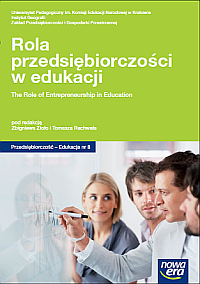Dark tourism as an innovating element of travel agencies
DOI:
https://doi.org/10.24917/20833296.8.28Keywords:
dark tourism, innowacyjnośćAbstract
Travelling, both in a history of the world and or even more in the present times, is far from commonly accepted ways to do leisure activities. Tourism has evolved from the traditional “3 x S” (Sea, Sun, Sand) to “3 x E” (Entertainment, Excitement, Education). Desire to enjoy new experiences, feel unique emotions and take certain actions, it is what prevails now. A relatively new form of tourism - dark tourism, provides such an opportunity. Traveling through trails of disasters, accidents, visiting places associated with calamities and death are the best examples of such tourism. The tourism market, which is represented by, among others, the mass media, provides all sorts of information to potential tourists. Natural curiosity and desire to explore the world drives people to see a phenomenon, which is in the centre of attention of everyone. Some travel agencies are introducing innovative tourism products associated with it and by means of that they become more competitive on the tourist market. Yet the question remains whether such trips are a great idea or perhaps they are immoral. On one hand they educate and sensitize people to the plight of others, but on the other hand the human misery is becoming a sort of tourist attraction, therefore one should consider the existence and creation of such innovative offers.
References
City of New Orleans Communications Department, 2008, Twenty important facts on the recovery of New Orleans post – Katrina and on the subsequent flooding; New Orlean, City of New Orleans Communications Department, http://www.neworleansonline.com/pr/releases/releases/20%20Important%20Facts%20About%20New%20Orleans.pdf (dostęp: 3.04.2008).
Griffiths K., b.d., Ground Zero & the phenomena of ‘Dark Tourism’, Pilot Film & Television Productions Ltd., http://www.pilot.co.uk/destination_guide/north-america/new-york/ground_zero.php (dostęp: 16.09.2011).
Holloway Ch. J., Robinson Ch., 1997, Marketing w turystyce, Polskie Wydawnictwo Ekonomiczne, Warszawa.
Kochmańska M., 2011, Zarządzanie innowacjami w małych i średnich przedsiębiorstwach w warunkach globalizacji [w:] Przedsiębiorczość w warunkach globalizacji, Z. Zioło, T. Rachwał (red.), „Przedsiębiorczość – Edukacja”, nr 7, wydawnictwo Nowa Era, Zakład Przedsiębiorczości i Gospodarki Przestrzennej Instytutu Geografii Uniwersytetu Pedagogicznego im. Komisji Edukacji Narodowej w Krakowie, Warszawa – Kraków, s. 90–102.
Kowalczyk A., 2002, Geografia turyzmu, Wydawnictwo Naukowe PWN, Warszawa.
Kruczek Z., 2009, Między atrakcją a pułapką turystyczną. Dylematy turystyki kulturowej XXI wieku [w:] Kultura i turystyka, razem, ale jak, A. Stasiak (red.), Wydawnictwo WSTH, Łódź, s. 71–80.
Krzymowska-Kostrowicka A., 1980, Terytorialny system rekreacyjny, analiza strategii, Zakład Narodowy im. Ossolińskich, Wrocław.
Kurek W. (red.), 2007, Turystyka, Wydawnictwo Naukowe PWN, Warszawa.
Molokáčová L., Molokáč S., 2011, New Phenomenon – Dark Tourism, Acta Geoturistica, tom 2, nr 1, s. 1–7.
New Orleans Convention and Visitors Bureau, 2011, New Orleans’ Tourism Industry Post Katrina Recovery Milestones 2005-2011, New Orlean, New Orleans Convention and Visitors Bureau, http://www.neworleansonline.com/pr/releases/releases/Sixth%20Anniversary%20Katrina%20Tourism%20Milestones.pdf (dostęp: sierpień 2011).
Rejman K., 2007, Wpływ innowacyjności na efektywność współczesnych przedsiębiorstw [w:] Rola przedsiębiorczości w aktywizacji gospodarczej, Z. Zioło, T. Rachwał (red.), „Przedsiębiorczość – Edukacja”, nr 3, wydawnictwo Nowa Era, Zakład Przedsiębiorczości i Gospodarki Przestrzennej Akademii Pedagogicznej im. Komisji Edukacji Narodowej w Krakowie, Warszawa – Kraków, s. 220–224.
Stangret M., 2010, Smoleńsk travel, czyli Polacy na szlaku katastrofy, „Ogólnopolski Dziennik Metro”, nr 1824, http://www.emetro.pl/emetro/1,85651,7843393,Smolensk_travel__czyli_Polacy_na_szlaku_katastrofy.html (dostęp: 4.05.2010).
Szarecki M., 2010, Rodzaje innowacji w turystyce, http://ww.naukaigospodarka.pl/index.php?option=com_content&view=article&id=257%3Arodzaje-innowacji-w-turystyce&catid=39%3Aartykuly&Itemid=108&lang=pl (dostęp: 28.06.2010).
Tanaś S., 2006, Tanatoturystyka – kontrowersyjne oblicze turystyki kulturowej; „Peregrinus Cracoviensis”, z. 17.
World Tourism Organization, 2011, Tourism Highlights 2011 Edition, Madrid, UNWTO Publications, http://mkt.unwto.org/sites/all/files/docpdf/unwtohighlights11enhr_1.pdf (dostęp: 30.04.2011).
Yuill S.M., 2003, Dark Tourism: Understanding visitor motivation at sites of death and disaster,
A thesis submitted to the office of Graduate Studies, Texas A&M University, Texas, http://repository.tamu.edu/bitstream/handle/1969.1/89/?sequence=1 (dostęp: 30.09.2004).
Downloads
Published
How to Cite
Issue
Section
License
Articles are published under the terms of the Creative Commons License (CC BY-ND 4.0; Attribution– NoDerivs).

